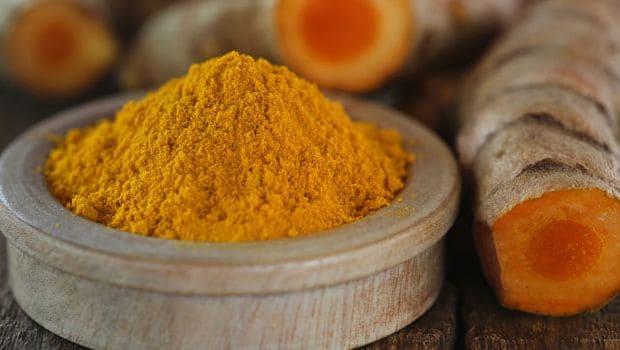Haldi's presence in Indian homes and kitchens goes back some two thousand years. Ayurveda has long sweared by its many health and healing properties. One of the most extensively used herbs in Indian cooking, many curry and gravy preparations are incomplete without the addition of that pinch of turmeric. Curcumin, present in turmeric and responsible for many of its healing properties, is also known to boost skin health. For many of us the mention of turmeric conjures the image of a bright yellow powder that can be used easily in cooking, healing or as part of your beauty regimen. Turns out, that raw turmeric or Kacchi Haldi which is basically turmeric in its most crude root form is also loaded with as many health and beauty benefits. The tuberous root-like buds you see at most veggie stalls is how haldi grows naturally. Once the harvest is complete, haldi powder is made from these very roots and packed for sale at stores. Here are ways you can put the golden root to use everyday.  1. Haldi ka DoodhThe ancient Herbal remedy for all kinds of pains and sores is typically made with dried turmeric powder, but the best way to make this golden drink is by using fresh/kachhi haldi. Peel and chop the turmeric root finely. In a pan take some milk, bring it to boil and add the chopped root. You can also add a some spices like ginger, cardamom and pepper corn. Drain the concoction in a cup. Drink regularly to reap maximum benefits.
1. Haldi ka DoodhThe ancient Herbal remedy for all kinds of pains and sores is typically made with dried turmeric powder, but the best way to make this golden drink is by using fresh/kachhi haldi. Peel and chop the turmeric root finely. In a pan take some milk, bring it to boil and add the chopped root. You can also add a some spices like ginger, cardamom and pepper corn. Drain the concoction in a cup. Drink regularly to reap maximum benefits.  You can whip up Ayurveda's favourite Haldi ka Doodh with Kacchi Haldi 2. Blend it into Smoothies
You can whip up Ayurveda's favourite Haldi ka Doodh with Kacchi Haldi 2. Blend it into Smoothies
You can use fresh turmeric to add a healthy kick to your regular smoothies too. Apart from its long list of health benefits, from boosting digestion to alleviating pain and purifying blood, raw turmeric can also add its characteristic bright yellow-golden colour to the drink. It goes very well with mango, orange and pineapple smoothies. Simply add a teaspoon or two of peeled and grated turmeric into your favorite smoothie, and enjoy its many benefits and flavor.  3. In Soups and BrothsYou can use fresh turmeric for colour and mild flavor in your warm soups. Pureed soups are a great way to make sure you don't lose out on your recommended fluid intake, especially in times of illness. The immense anti-inflammatory, antimicrobial, anti-viral properties of chopped raw turmeric will further raise its immunity boosting powers. The flavor of raw turmeric is best complimented by ginger so if you are making soups which need a little bit of ginger, feel free to add a pinch of fresh turmeric too. Carrot soups, cauliflower soups, yellow pea soups - there are options galore.
3. In Soups and BrothsYou can use fresh turmeric for colour and mild flavor in your warm soups. Pureed soups are a great way to make sure you don't lose out on your recommended fluid intake, especially in times of illness. The immense anti-inflammatory, antimicrobial, anti-viral properties of chopped raw turmeric will further raise its immunity boosting powers. The flavor of raw turmeric is best complimented by ginger so if you are making soups which need a little bit of ginger, feel free to add a pinch of fresh turmeric too. Carrot soups, cauliflower soups, yellow pea soups - there are options galore. Raw turmeric can be used in soups4. A Substitute for saffron or mustardRan out of saffron or mustard to give the dish, a bright yellow hue? Don't worry, use a little bit of peeled and grated raw turmeric to see the golden colour pop up in no time. Not just your gravies, you can also add them to your rice preparations for a bright addition to the plain old white rice. Fresh turmeric juice, made by squeezing peeled turmeric root in a garlic press, can also give boiled or steam-cooked rice a beautiful golden color. However, if you happen to have an aversion to the flavor of kachhi haldi, then it is better to avoid the idea, as the flavor may be quite prominent for some who like their rice mild.
Raw turmeric can be used in soups4. A Substitute for saffron or mustardRan out of saffron or mustard to give the dish, a bright yellow hue? Don't worry, use a little bit of peeled and grated raw turmeric to see the golden colour pop up in no time. Not just your gravies, you can also add them to your rice preparations for a bright addition to the plain old white rice. Fresh turmeric juice, made by squeezing peeled turmeric root in a garlic press, can also give boiled or steam-cooked rice a beautiful golden color. However, if you happen to have an aversion to the flavor of kachhi haldi, then it is better to avoid the idea, as the flavor may be quite prominent for some who like their rice mild.  You can use kacchi haldi for the perfect golden colour in your gravies5. Add Colour and Flavour to your eggsAdd some grated turmeric (or freshly squeezed turmeric juice) to the egg mixture before cooking it on a frying pan and treat yourself with golden omelettes and scrambled eggs.
You can use kacchi haldi for the perfect golden colour in your gravies5. Add Colour and Flavour to your eggsAdd some grated turmeric (or freshly squeezed turmeric juice) to the egg mixture before cooking it on a frying pan and treat yourself with golden omelettes and scrambled eggs. 6. Make a paste and apply it on injuries or affected areaThe high antiinflammtory properties of Kacchi haldi make it a favourite pain relief balm of the country. According to Consultant Nutritionist Dr. Rupali Dutta, "It can be applied in paste form on affected area or consumed with milk for best results".
6. Make a paste and apply it on injuries or affected areaThe high antiinflammtory properties of Kacchi haldi make it a favourite pain relief balm of the country. According to Consultant Nutritionist Dr. Rupali Dutta, "It can be applied in paste form on affected area or consumed with milk for best results". 
The many benefits of raw haldi are no less in comparison to its dried powdered counterpart. Winters are the best time to find fresh kachhi haldi chunks, so use them in your daily routine for the next few months and see the results for yourself!
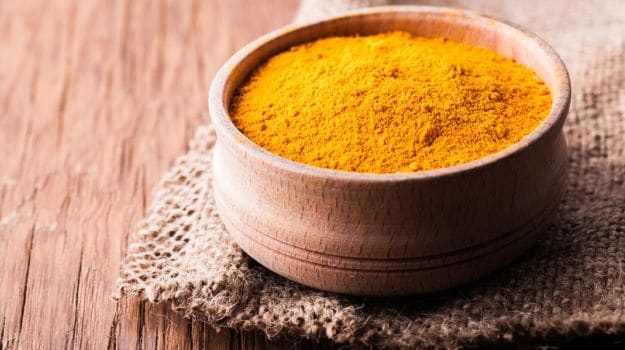
Photo Credit: iStock
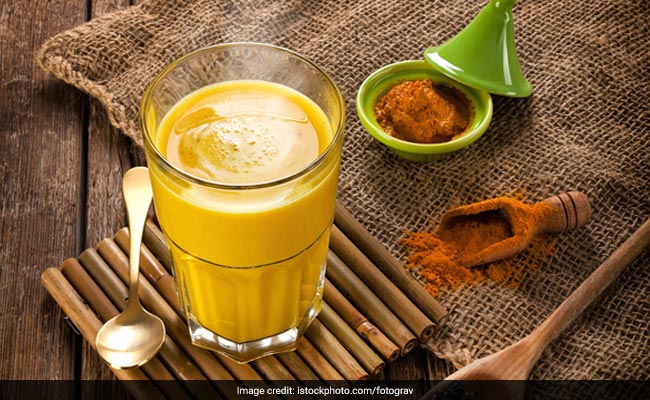
You can use fresh turmeric to add a healthy kick to your regular smoothies too. Apart from its long list of health benefits, from boosting digestion to alleviating pain and purifying blood, raw turmeric can also add its characteristic bright yellow-golden colour to the drink. It goes very well with mango, orange and pineapple smoothies. Simply add a teaspoon or two of peeled and grated turmeric into your favorite smoothie, and enjoy its many benefits and flavor.

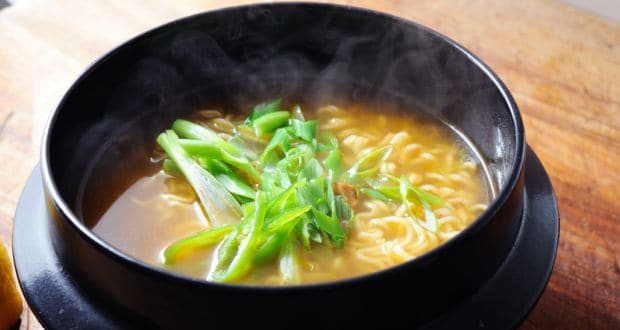


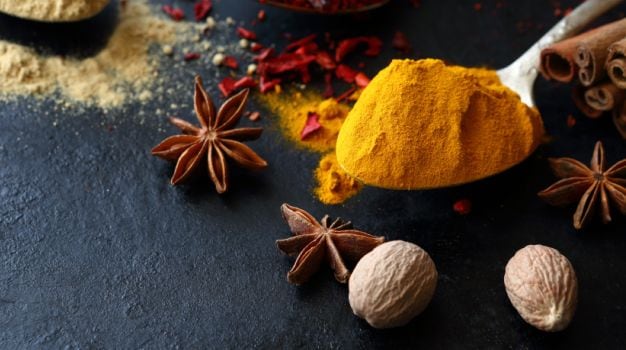
The many benefits of raw haldi are no less in comparison to its dried powdered counterpart. Winters are the best time to find fresh kachhi haldi chunks, so use them in your daily routine for the next few months and see the results for yourself!
Advertisement
About Sushmita SenguptaSharing a strong penchant for food, Sushmita loves all things good, cheesy and greasy. Her other favourite pastime activities other than discussing food includes, reading, watching movies and binge-watching TV shows.
For the latest food news, health tips and recipes, like us on Facebook or follow us on Twitter and YouTube.
Tags:










